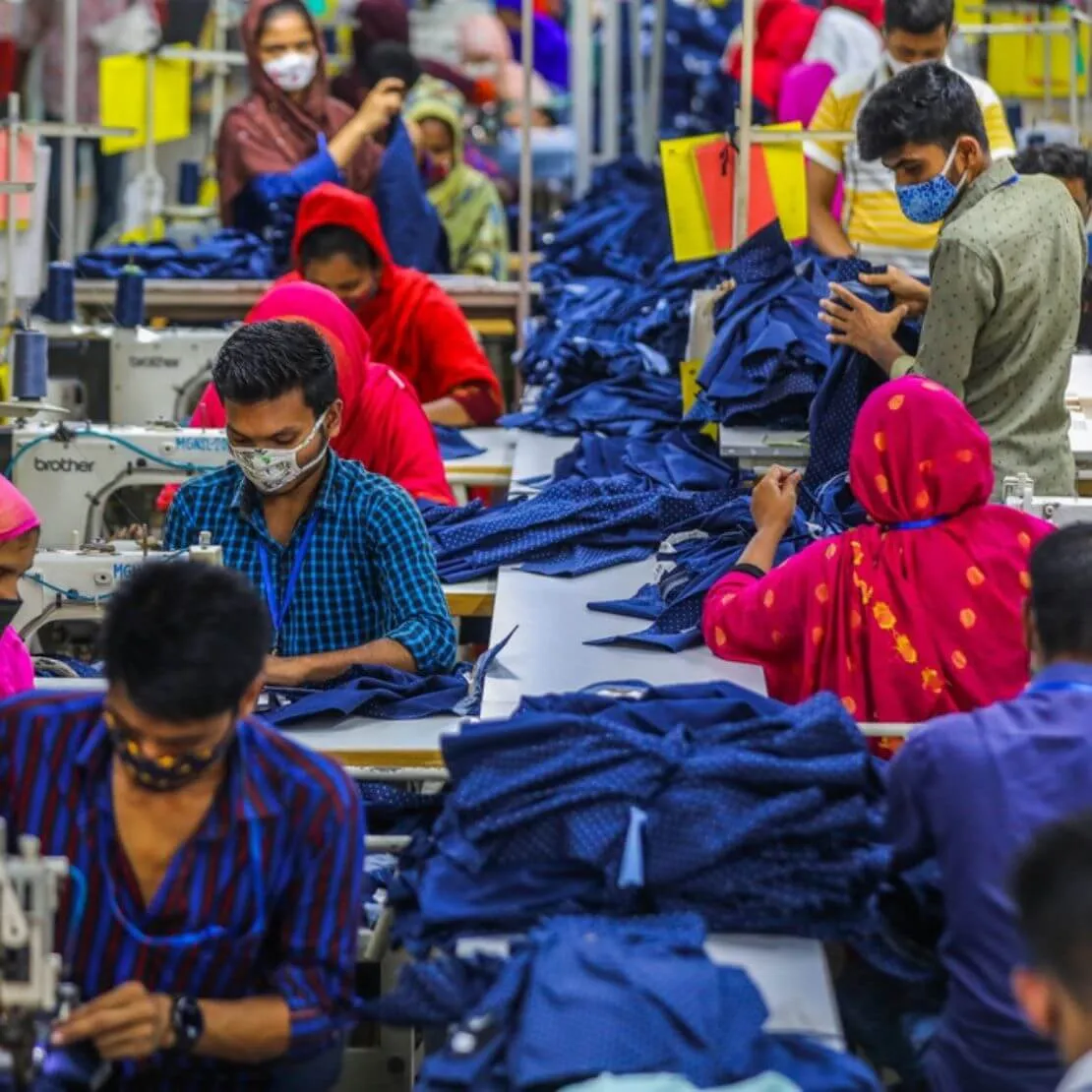The pandemic and recent factory fire are devastating Bangladesh’s garment workers
Earlier this month, over 50 people were killed in a factory fire in Bangladesh outside the capital Dhaka. The factory entrance was padlocked at the time, preventing people from escaping to safety. This type of devastating tragedy is, unfortunately, not new in Bangladesh. From the Tazreen Fashions factory fire that killed over 100 people in 2012 to the Rana Plaza disaster with a death toll of over 1,100 the following year, unsafe working conditions are all too prevalent. In fact, the New York Times cited a Solidarity Center report that notes over 150 safety episodes in Bangladesh’s garment industry between 2012 and 2019, with over 1,300 deaths and 3,800 injuries in total. Heartbreakingly, little has changed in the wake of these awful tragedies. It is high time that consumers in the “developed world” hold multinational corporations accountable for their role in enabling these senseless deaths.
The owner of the factory where the most recent fire occurred has been arrested on murder charges, and police discovered multiple other safety breaches in the factory. On top of that, officials found widespread child labor in the factory. “Nobody cares about the workers’ life and safety issues,” workers’ rights activist Nazma Akter told Al Jazeera. These arrests are a shallow form of justice, given such unsafe working conditions will persist after this tragedy, just as they did after Rana Plaza.
It would be damaging to solely emphasise the role of the Bangladeshi government in these tragedies. Doubtlessly, the lack of regulation enables such unsafe working conditions to continue. However, the profit-motivated greed of multinational corporations who continue to source their supply chains in these unsafe environments also plays a significant role.
These companies, including H&M, ZARA, and other fast fashion giants, are responsible for nearly $12 billion in wage theft for Asian garment workers during the pandemic. The Financial Times reported that 1.6 million garment workers lost their jobs in seven Asian countries, including Bangladesh. Since many of these workers rely on daily wages to eat, this has precipitated a massive crisis of poverty and hunger amid the third wave of COVID-19 and subsequent lockdowns.

Now is the time to hold these companies accountable. The Delta variant is behind a massive surge in COVID-19 cases in Bangladesh, where only about 4 million out of 160 million people are fully vaccinated thanks to global vaccine shortages as well as vaccine apartheid caused by hoarding by countries like the United States. The AP reports that, although the situation in India has eased since the devastating wave in April and May, Bangladesh is now experiencing an enormous escalation that is only expected to worsen in the coming days. On top of the already low inoculation rates in the general population, Rohingya refugees in the country have received zero vaccines. The prospect of 900,000 refugees in crowded camps contracting COVID-19 is terrifying for both Bangladesh and the world at large as the virus mutates.
The severity of the pandemic’s third wave relates to the most recent factory fire because both worsen the abusive conditions facing the country’s garment workers. Their plight is the result of systemic failures to protect workers in the Global South who bear the double brunt of unsafe working conditions and the worst consequences of vaccine apartheid. Each corporation that has contributed to the $12 billion in wage theft for garment workers is liable for their current predicament.
While it is certainly true that not everyone can afford to boycott fast fashion, the alternative is not to continue letting these corporations abuse these workers with no consequences. Despite losses in the first half of 2020, companies like H&M have since rebounded to generating significant operating profits. It is certainly within our power as consumers to push them to act. The head of a Bangladeshi textile factory that supplies to H&M told Reuters that they’d have to shift to green energy to keep consumers happy. Companies are responding to calls to reduce their emissions across supply chains. Why can’t the same pressure be exerted with regards to labor rights?

In 2017, H&M and other giants boycotted Bangladesh’s Dhaka Apparel Summit to support garment workers who had been fired or jailed for participating in wage strikes. The strike ended up being quashed by the government, but this signals that companies face some pressure to react to government abuses. In the face of the factory fire and rapidly worsening pandemic, the companies should take similar measures to condemn the government’s lax regulations and neglect of laborers. A coordinated boycott, or at least widespread outcry from consumers, could move them in that direction. The problem, however, is that they have a profit incentive to keep regulations lax and child labor practices unregulated. Strong legal protections, difficult to implement in such an authoritarian environment, are one of the only reliable checks in such a stringent political climate.
We have a collective responsibility to step in and demand justice for Bangladesh’s garment workers. They have been caught in the crossfire between global capital, a neglectful government, and the rapid escalation of COVID-19. As consumers, we have some power to demand accountability from apparel giants like H&M, but direct solidarity with workers is ultimately needed. Mutual aid and international labor solidarity may provide the impetus for the structural shifts needed to prevent another factory fire from senselessly killing dozens of workers again.
To contribute directly to Bangladesh’s most marginalised families who are suffering the consequences of the third lockdown, please donate at this link.